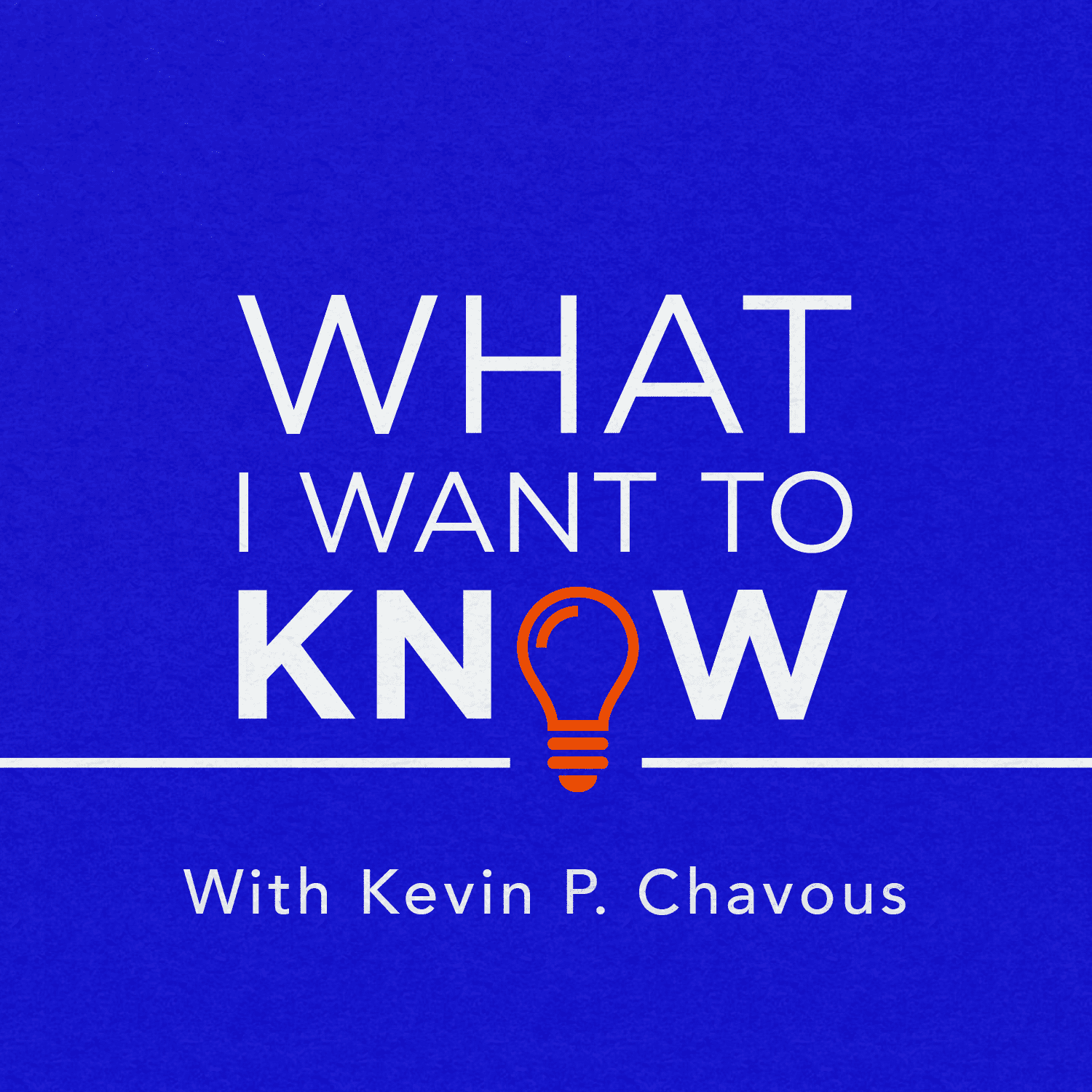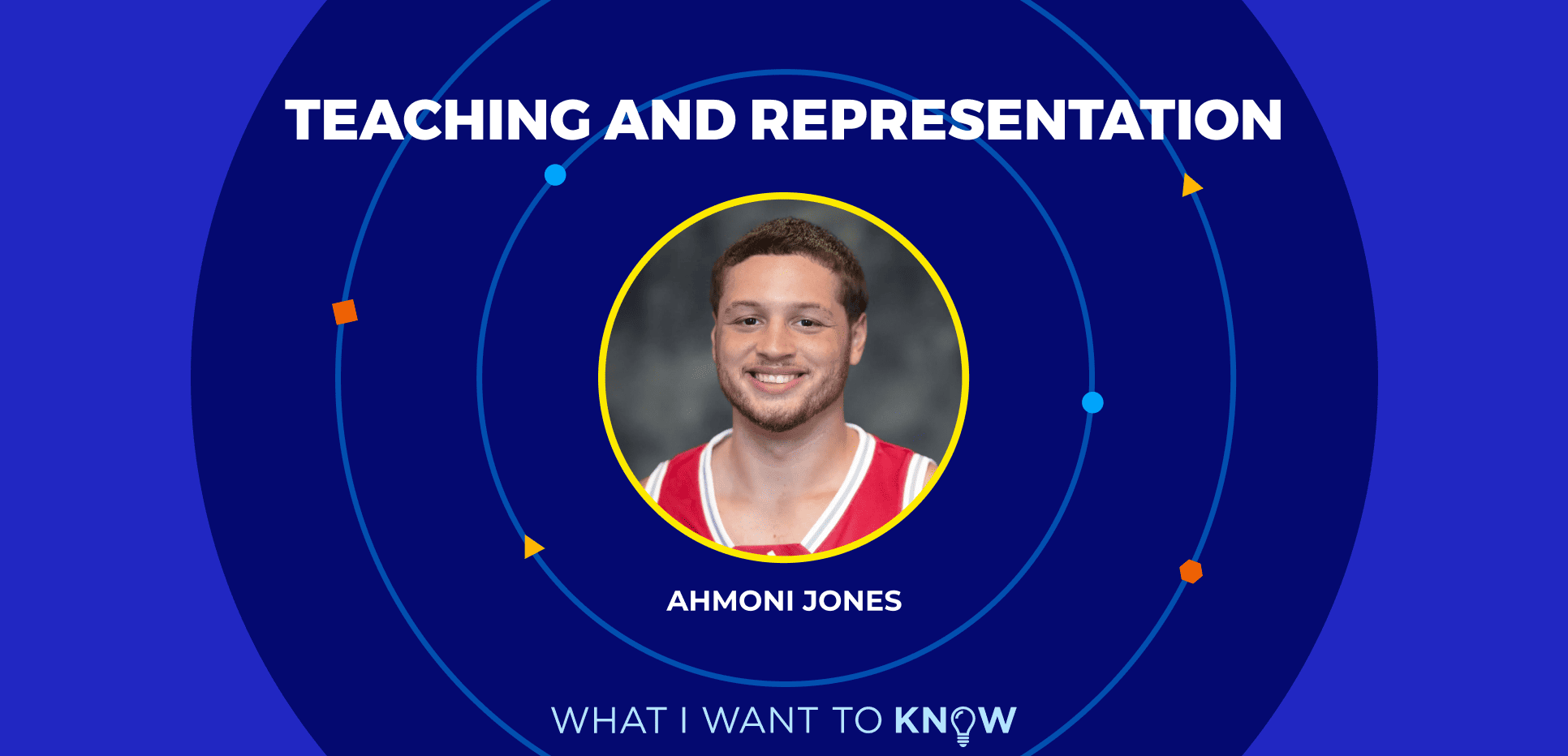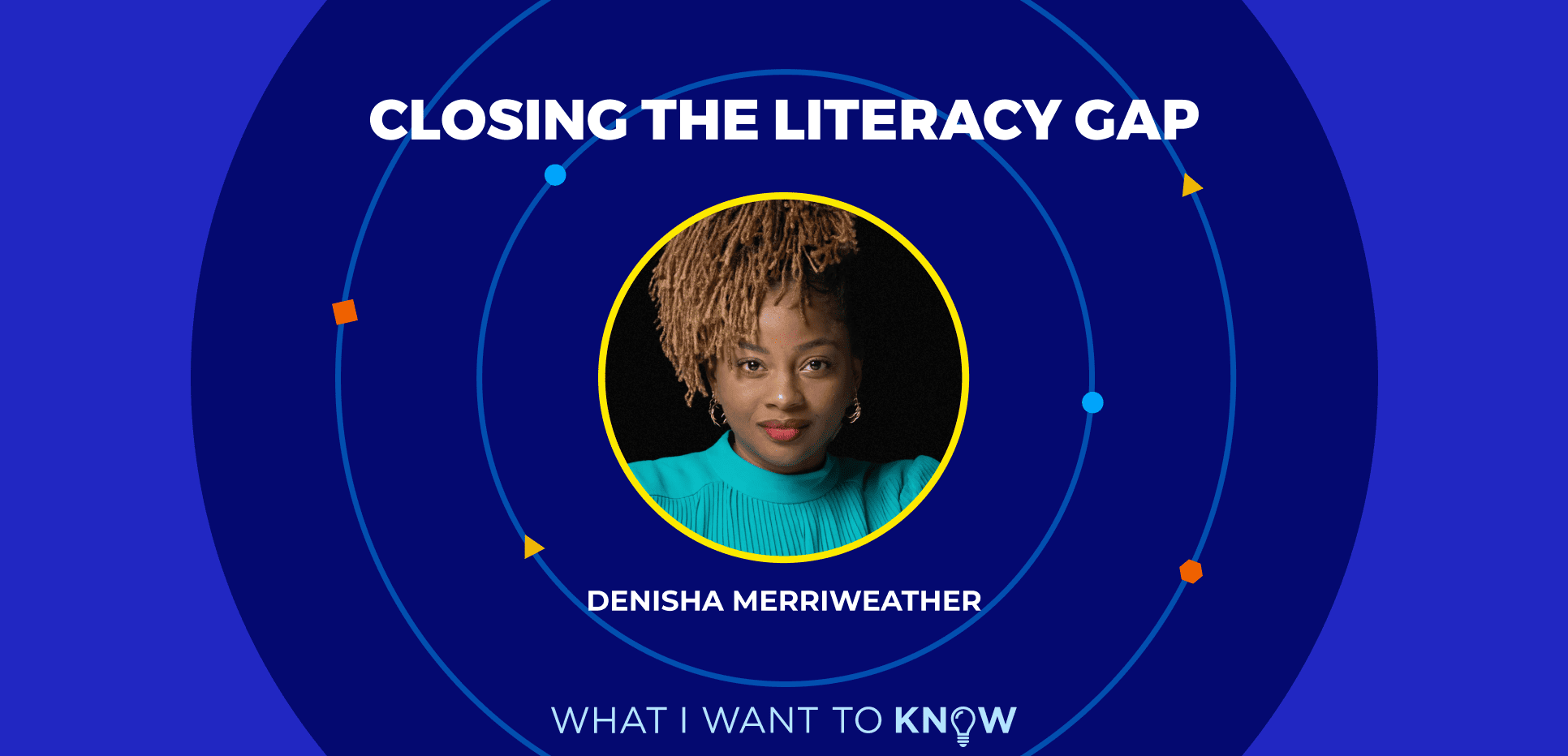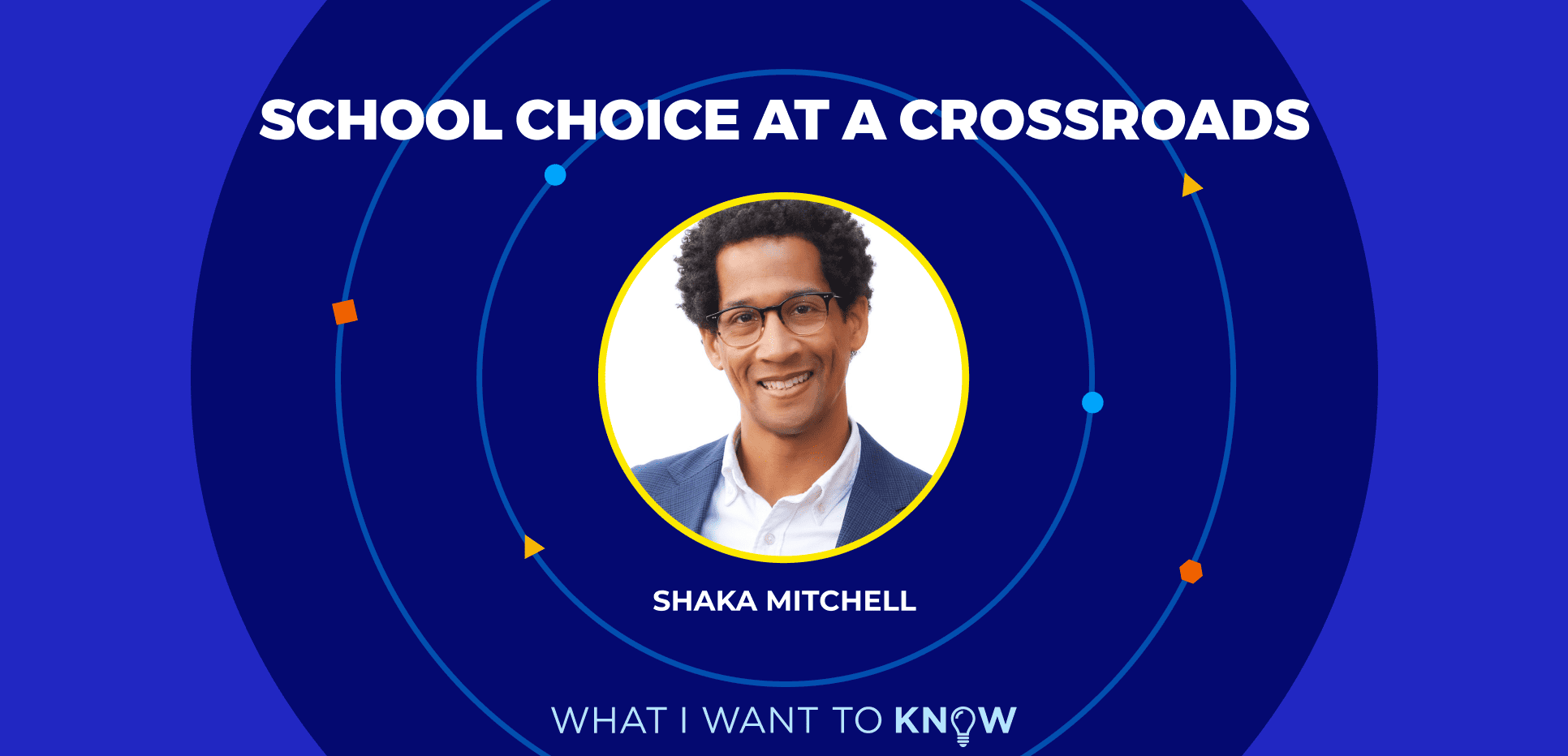While the U.S. has made great strides to achieve gender equality, studies still show that girls have less self-confidence than their male counterparts. What can schools do to close the confidence gap? How can we create environments that empower young women to set and achieve greater goals? How does this gap impact people of color? And how can we, as a society, make the most of what gender and racial diversity offers?
In this episode, SpaceX astronaut Dr. Sian Proctor joins Kevin and shares her take on the power of perseverance, the importance of hard work, and what we can do to ensure young women know they have the freedom and opportunity to get the job done.
Listen to the Full Audio
Listen on: Apple Podcast, Spotify
Transcript
Kevin: While we’ve made great strides in gender equality in recent years, studies show that girls still lag behind boys when it comes to self-confidence. How can we create environments in which girls feel empowered to set and achieve big goals? What should our schools be doing to close the confidence gap? And how can we, as a society, ensure that we make the most of what gender diversity has to offer? This is “What I Want to Know.”
Kevin: And today, I’m joined by Dr. Sian Proctor to find out. Dr. Sian Proctor is a geology professor, science ambassador, and commercial astronaut, who was the first black woman in history to pilot a spacecraft. Her 2021 flight aboard the SpaceX Inspiration4 mission inspired people around the world, and especially young women and people of color, who dare to dream big dreams. She is with us today to share her take on the power of perseverance, the importance of hard work, and what we can do to ensure young women not only believe they can achieve great things, but have the freedom and opportunity to get the job done.
All right. Well, Dr. Proctor, Sian Proctor. I tell you what, I’m excited to have you on the show. I just love the way you characterize yourself. You say you’re a storyteller, an explorer, and a space artist. And, you know, I’m big on words. I’m fascinated by the fact you put storyteller first. Where did that come from?
Dr. Proctor: Well, you know, I think, as an educator, we’re storytellers. And so, I’ve been a geoscientist, a professor at the community college, for over 20 years. And every time I start a new class, it’s about telling the story of the science behind something. So if I’m teaching the geologic history of our planet, then it’s that storytelling aspect that I like to bring in, because then you grab the students with, you know, some mystery and some intrigue, and really, it’s about getting them to create their understanding of that discipline, through, you know, their own story. So, for instance, if I was teaching intro to planetary science, I have the students create, you know, a story of our solar system, starting with the sun outward, in their own words, and learning and their knowledge, and expressing that, and really trying to get them to become their own versions of science communicators, even though most of my students are non-science majors.
Kevin: One of the things I wanted to sort of tease out during this conversation is this whole idea of gender diversity in the area of space exploration. And early on, I’m sure that it was different for you, as a young girl, to be talking about these things.
Dr. Proctor: I’m actually pretty amazed, now that I look back, that my parents were so optimistic. And particularly my dad. He never said that I couldn’t do anything. And when I think back to being that little girl and wanting to build model airplanes and learn how to fly, and it was all from the military lens, you know. I wanted to be a fighter pilot, and my dad never said, “Well, there’s no, you know, women fighter pilots.” And he never said, you know, there’s no, particularly no Black women fighter pilots. And I didn’t learn that until I was an adult that the first female fighter pilot in the United States wasn’t actually until in the ’90s. And so, think about, you know, they did have women, you know, flying for the military and stuff, but to be assigned, like, in F-16 or an F-14 Tomcat and stuff, that was a little more unusual kind of thing.
And I remember, as a kid, now that I look back, at how all of my role models were White male. But because of my parents, I think that that didn’t discourage me. They actually encouraged me to pursue that. And my dad was very encouraging in the sense that he signed me up for the Civil Air Patrol. He’s like, “You wanna fly? Okay. Well, let’s join this auxiliary of the Air Force, and you can start wearing the Air Force uniform, and see how you like it.” And it was really interesting, too, because education was such a big part. Neither of my parents had college degrees, but they encouraged me and my siblings that education was the way in which you got opportunity. And the more educated you could become, whether it’s self-educated or through formal education, the more, you know, amazing things you would be able to do with your life.
Kevin: Yeah. And, you know, the parental influence and support is so important, but so is the experience that children have at individual schools. And as we know, if you don’t have both, there can be some tension. How was it when you were in elementary school and junior high, and talking about those things, in the school setting?
Dr. Proctor: You know, back then, not very encouraging. And it’s been great to see how much that’s changed. So, when I think back to…you know, I was born in 1970, so ’70s and ’80s were, you know, my developmental years. And there were, like, no role models, no real encouragement.
Kevin: What state schools did you go to?
Dr. Proctor: We moved a lot. So, actually, by the time I started, I started preschool in New Jersey, and then elementary school in New Hampshire, and then middle school in New York, Upstate New York, and then finished high school in Upstate New York. And, you know, because my parents were climbing the economic ladder, my dad and my mom were very adamant about trying to find the best school districts, and that usually meant suburb, and predominantly White. And so, again, you’re found in a situation where you’re not in a very diverse setting, and none of my teachers, from elementary all the way through even graduate school, I never had a Black female science teacher.
Kevin: And how did those White science teachers respond to you and your interests?
Dr. Proctor: I got labeled a lot of things. I mean, I look back and, you know, it wasn’t very encouraging. It was more discouraging in some aspects, particularly I think English. I remember being labeled early as not being strong in that area. And so, that’s where…you know, you just sit in the back of the class. And you could tell which students the teacher, you know, really liked, versus…and you knew when you’re not one of them. And so, that’s one of the things as me, as an educator for the past 20 years, is really think about equity. And how do you create what I call a JEDI space, a just, equitable, diverse, and inclusive space, within your classroom? And thinking about, across the board, making all of the students feel like they’re important, and that the work that they’re doing… You know, being encouraging, even if there’s different levels of how much the students are attaining, you still want to make them all feel equal.
Kevin: A lot of people don’t know that before your famous flight, that that history of you getting there, beyond your sort of K-12 education, had some challenges. And one of the challenges was that as hard as you worked to enter into the astronaut program at NASA, you were initially rejected. Talk about that.
Dr. Proctor: When I was 16, I got glasses, so I knew I wasn’t gonna be a military aviator. Then my father passed away when I was 19. And he was always my biggest champion for these kinds of things. And so, I kind of just gave up on being a fighter pilot and an astronaut, and became a geoscientist, traveling and teaching around the world, and doing all those kinds of things, and being an explorer, and developing my science communication voice. And then one day, when I was in my late 30s, somebody sent me an email saying, “NASA’s looking for astronauts. You should apply.” And the first thing you’re like, “Wait, what? Me? I’m just, you know, a community college professor. Nobody knows who I am. There’s no way this is gonna happen.” But, you know, that idea that someone saw this application and thought of me, and that’s the way you wanna project yourself, right, is like, how do people see you?
And so, when they find opportunity, they think of you and send it to you. And so the fact that this person saw this and thought, “Wow,” you know, “Sian would make a great astronaut.” And so, I opened up the application, and I realized that I was qualified. And then once I got past my imposter syndrome, I actually put in my application, and I went through the selection process for the 2009 NASA astronaut selection. And I was a finalist, and I got down to the yes/no phone call. And it was a no, and it was one of those things where it’s just sad, and it just kind of like tears you down because you just think, “Oh, you know, I was so close to that childhood dream.” And that’s where your persistence comes in, because you really have to kind of, you know, pull yourself up and continue to work forward and strive for those things that you wanna accomplish in life. And so, I pivoted and became an analog astronaut, somebody who was helping to advance human space flight, but here were on Earth, by living in moon and Mars simulations.
Kevin: So, when you got the rejection and you ended up going through this alternative path to try to get to space, eventually you got into space, as a space artist, as you said. I’m gonna tease that out a little bit more as well. But how did that happen? How did you finally get to the point where you were rejected, you chose this alternative path, no straight lines, as we agree, but eventually, you got a call, they said yes?
Dr. Proctor: COVID hit. And we went into lockdown. And my creativity had always been expressed as an explorer mainly through traveling. I had all these trips planned. I was gonna hike to Everest Base Camp, and it all went away. And I found myself for the first time kind of like locked in my own simulation in my house. And I needed a creative outlet. So, you know, during that time, some people baked, some people, you know, did art, some people did music. Well, I decided that I was gonna become a space artist. And I started creating, you know, first with collage art, because, again, when I was younger, I got labeled as, like, “You’re not an artist.” They like to separate us out into you’re either an artist or you’re a scientist in STEM, when really, all of that is melded together.
And so, I started making collage art, and it was well-received. And then I thought, well, maybe I can paint. Maybe I can draw, maybe… And so I started down this magical way of creating, expressing my creativity. And then I combined that with poetry. So I’d create an art piece, and then I’d write a poem to go with it. And I think about how now, when I create these poems, how I can express some of the things that I wanna say in a creative, interesting way, to get people thinking, “Huh. You know, wait a second.” And I actually, my book of art and poetry is just coming out, where my collection of all of my poems and my art, and thinking about…
Kevin: It’s called “Space 2 Inspire.”
Dr. Proctor: Yeah. “Space 2 Inspire,” but, like, this kind of thing, you know, where it’s designed to get people to think, “Huh. Wait a second. What?” You know? And I’ll read one to you. This is called “Artemis Rising” because this is one that is about going to the moon. And so, “Artemis Rising,” “Will you know my name as deep as I know yours? Will you embrace me the way you did him? I don’t get the luxury of choice. Only the sorrow of never being first. They say it’s okay, you still belong, but we know the truth. Only select tokens will be taken at this entrance booth.” And so, you know, when we’re thinking about the first female to step on the moon, and NASA’s, even their messaging, they say, “We’re gonna send the first female to the moon, and the first person of color.” Well, can’t they be one and the same? Let’s, just send a Black female, you know? And you could check both of those boxes off.
Kevin: Check a lot of boxes. Check a lot of boxes. And thank you for reading that. I can’t wait to read the whole book. But that’s where the JEDI comes from. And talk a little bit about that.
Dr. Proctor: So, when I got selected to go to space, one of the things that I’d been thinking a lot about is JEDI, just, equitable, diverse, inclusive space. And how do we create that? Not just in outer space, you know, in the advancement of human space flight, but here on Earth, in our own personal space. And I think that starts with when we’re thinking about our space to inspire, our unique space, how do we make that a JEDI space? And we do that by being mindful of situations around us. And I talk about how, you know, as a Black female, and opening up access, and really kind of, like, being…you know, striving for equality within the classroom and those kinds of things, but also talking about activated allies. You know, I have a lot of my friends who are Caucasian and have a kind of a seat of privilege. And they have a platform that they don’t even realize that they can use in ways that will advance a JEDI space.
And I talk about how if they’re an active ally, not just an ally, but active, like actually using their privilege to help create a JEDI space, imagine what that world would be like? And a prime example of that is conferences. You know, the first thing that I do when I look at a conference that I might be attending is look at the speaker list, and see how diverse it is. And if it’s not diverse, you know, a lot of times, I’m the one who has to point that out. And I tell my friends who might actually be on the panel and stuff, like, you know, you’re coming from a point of privilege because, you know, you already are on this panel, and you’ve noticed that, you know, it might be all White. And there might be a breakdown of female and male, but there’s no, like, diversity in other ways besides gender. But you could say something. You don’t need the people who are already excluded to always be the ones who are saying, “Hey, this isn’t right.” You know, or the minority to be like, “Wait, did you notice this?” But if you’re an active ally in that space, you will take the time to notice that, and say something.
Kevin: So, this is what I really want to know. What can schools do to better empower women to not only set high goals, but to believe they can reach them?
Dr. Proctor: Well, I think that comes to this notion of space to inspire, and a JEDI space. Because in the classroom, you can set up your classroom to be a JEDI space, but, you know, it’s about empowerment, right? You know, my parents empowered me to dream big. And so, when we’re talking about in school systems, how do we empower our students to dream big and believe that through hard work, great determination, lifelong learning, that you can achieve these dreams? It may not be easy, and it may not be the way you thought it was going to be, but there are routes to happiness and fulfillment, because, in the end, that’s really what it is. It’s about having a life and a career that’s filled with [inaudible 00:17:08] love, laugh, joy, but also the sense of fulfillment and accomplishment, however that is packaged. And so, I think, you know, setting up a JEDI space, talking to students, and empowering them to think about these concepts and their role and their ownership in that, and their voice.
Kevin: Dr. Sian Proctor, you’re a true American hero and legend. Thank you for joining us on “What I Want to Know.”
Dr. Proctor: Thank you.
Kevin: Thanks for joining, “What I Want to Know.” Be sure to follow and subscribe to the show on Apple Podcasts, Spotify, or your favorite podcast app. And don’t forget to write a review, too. Explore other episodes, and dive into our discussions on the future of education. I also encourage you to join the conversation, and let me know what you want to know using #WIWTK on social media. That’s #WIWTK on social media. For more information on Stride, visit stridelearning.com. I’m your host, Kevin P. Chavous. Thank you for joining “What I want to know.”
Meet Dr. Proctor
Dr. Sian Proctor is a geology professor, science ambassador, and commercial astronaut who is the first black woman in history to pilot a spacecraft. Her 2021 flight aboard the SpaceX Inspiration4 mission inspired people around the world, and especially young women and people of color who dare to dream big dreams.







